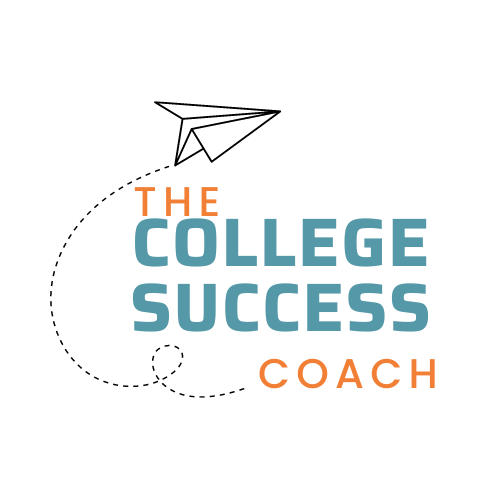College Advisor: What They Do and Don’t Do
College is an exciting but overwhelming journey filled with academic, financial, and personal decisions. For both students and parents, navigating this new phase can feel like stepping into unknown territory. That’s where a college advisor comes in.
But here’s something many students and parents don’t realize: A college advisor isn’t the same as a college life coach.
If you’ve been relying on a college advisor for everything, from choosing classes to figuring out how to succeed in college, you might be missing out on critical support that advisors don’t provide. This article will break down what a college advisor does, what they don’t do, and how a college life coach like me can help fill in the gaps to ensure students don’t just survive college but actually thrive.
What a College Advisor Does

A college advisor is primarily focused on academics. Their job is to help students stay on track with their degree program and avoid scheduling conflicts that could delay graduation. Here’s what a college advisor typically helps with:
- Course Selection: Making sure students enroll in the right classes to meet their degree requirements.
- Graduation Requirements: Tracking progress to ensure students are meeting all necessary credits.
- Changing Majors: Helping students navigate the process if they decide their current major isn’t the right fit.
- Academic Policies: Explaining school policies like withdrawal deadlines, pass/fail options, and credit transfers.
- Connecting to School Resources: Referring students to tutoring centers, disability services, or other campus support.
A college advisor is an important guide in the academic process, but their role is limited. They typically don’t have the time—or the training—to help students with personal growth, motivation, mental health struggles, or overall college success strategies. That’s where a college life coach steps in.
What a College Advisor Doesn’t Do
Many students and parents assume that their college advisor is there to help with all aspects of college life. But that’s not the case. A college advisor won’t:
- Help with time management, study skills, or motivation
- Provide strategies for balancing school, work, and personal life
- Offer mental health support or guidance on dealing with stress and anxiety
- Coach students on goal-setting and personal development
- Help students figure out their career path beyond just meeting degree requirements
This is why so many students struggle even when they’re taking all the right classes. A college advisor can help students get from point A to point B academically, but they don’t provide the tools for success, resilience, or long-term personal growth.
The Problem: Many Students Feel Lost Even with an Advisor

Students often meet with their college advisor once or twice a semester, but outside of those meetings, they may still feel lost, unmotivated, or overwhelmed. Parents might assume that because their child has an advisor, they are getting all the support they need. But in reality, many students struggle with:
- Procrastination and time management—knowing what needs to get done but not following through
- Balancing responsibilities—juggling school, work, and social life without burning out
- Mental health challenges—dealing with anxiety, stress, or loneliness in college
- Lack of motivation—feeling stuck or unsure about their future, even if they are in the “right” major
- Difficulty adjusting to independence—navigating finances, relationships, and personal growth on their own
A college advisor doesn’t address these challenges, and many students are left to figure them out alone. If you’re a first-year college student (or the parent of one), understanding how to navigate these challenges early can make all the difference. Check out this ultimate guide for first-year students for must-know tips and advice
The Solution: How a College Life Coach Fills the Gap
This is where I come in. As a college life coach, I don’t just focus on academics—I focus on the student as a whole person. College isn’t just about passing classes; it’s about building confidence, developing skills, and setting the foundation for a successful future.
Unlike a college advisor, a college life coach helps students:
- Create a personalized success plan—including time management, study habits, and organization
- Develop strong self-discipline and motivation—so they don’t fall into procrastination traps
- Learn how to balance responsibilities without constantly feeling overwhelmed
- Set meaningful goals—both academically and personally
- Navigate stress, anxiety, and burnout with real strategies that work
- Prepare for life after college—including job search skills, networking, and personal development
This kind of support goes far beyond what a college advisor offers. It’s about long-term success, confidence, and growth, not just class schedules and graduation requirements. Success in college isn’t just about picking the right classes; it’s about learning strategies that lead to real academic and personal growth. For practical techniques that can make a difference, check out this guide on transforming your college journey
For hands-on resume help that translates campus experience into employer-ready bullet points, explore these resume services.
Why Parents Should Care About College Coaching

For parents, college coaching provides peace of mind. Instead of constantly checking in and worrying if your student is managing everything on their own, a college life coach ensures they have the tools and support they need to succeed.
Parents invest thousands of dollars in tuition, housing, and books—yet many students still struggle or even drop out because they don’t have the right personal and academic support. Investing in a college life coach is about making sure that investment in college pays off by ensuring students not only graduate but develop the skills they need for a successful life beyond college.
Many parents unintentionally hover too much because they don’t feel confident that their student has the right guidance. If you want to ensure your student becomes independent and responsible—without micromanaging—read this guide on stopping helicopter parenting in college.
How to Get Started with College Coaching
If you or your student are feeling stuck, overwhelmed, or just unsure of how to make the most of college, now is the time to get support. My College Success Coaching Program helps students build confidence, develop time management skills, and create a clear plan for success—without feeling stressed or alone in the process.
I offer three coaching options:
- College Success Workbook – A self-paced coaching experience covering the basics of college success strategies.
- Group Coaching Program – Monthly group sessions + the video course + workbooks + exclusive resources.
- One-on-One College Mentor Program – Personalized coaching every other week + unlimited access via email, text, and video messages.
If your student is serious about making college work for them—and not just surviving the next few years—coaching could be the missing piece.
Final Thoughts: Don’t Just Get Through College—Make the Most of It
A college advisor plays an important role in guiding students through their degree, but they aren’t designed to help with the deeper challenges of college life. If you or your student feel like something is missing—whether it’s motivation, balance, or confidence—it’s time to consider college coaching.
Success in college isn’t just about picking the right classes. It’s about learning how to manage time, overcome challenges, and build a strong foundation for the future.
Interested in learning more? Let’s talk. Book a consultation today to find out how college coaching can help you or your student thrive in college and beyond.






0 Comments